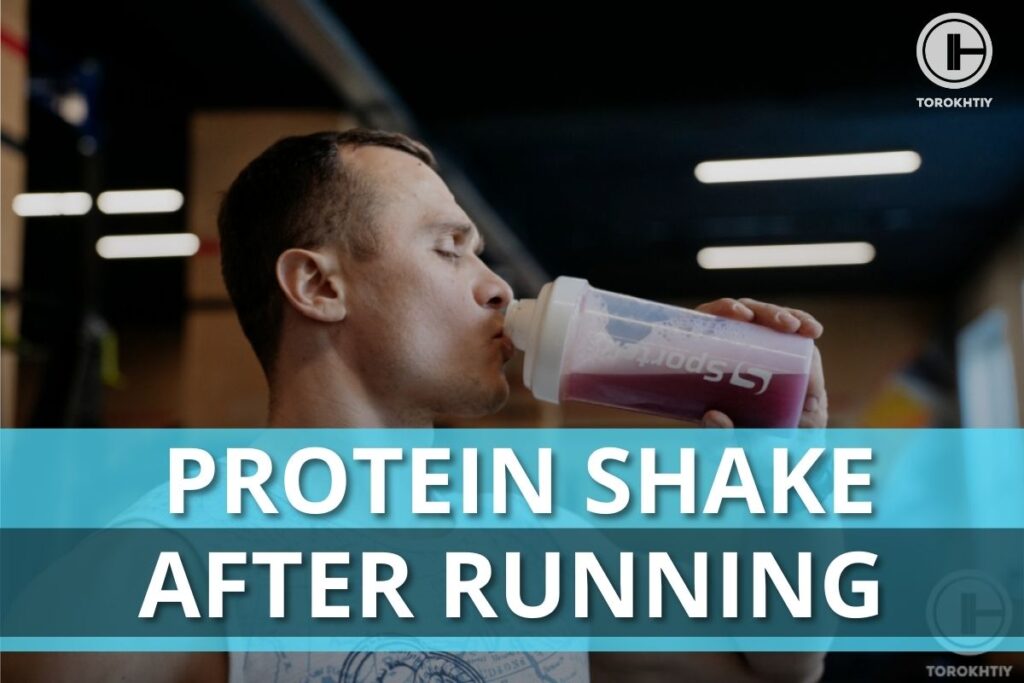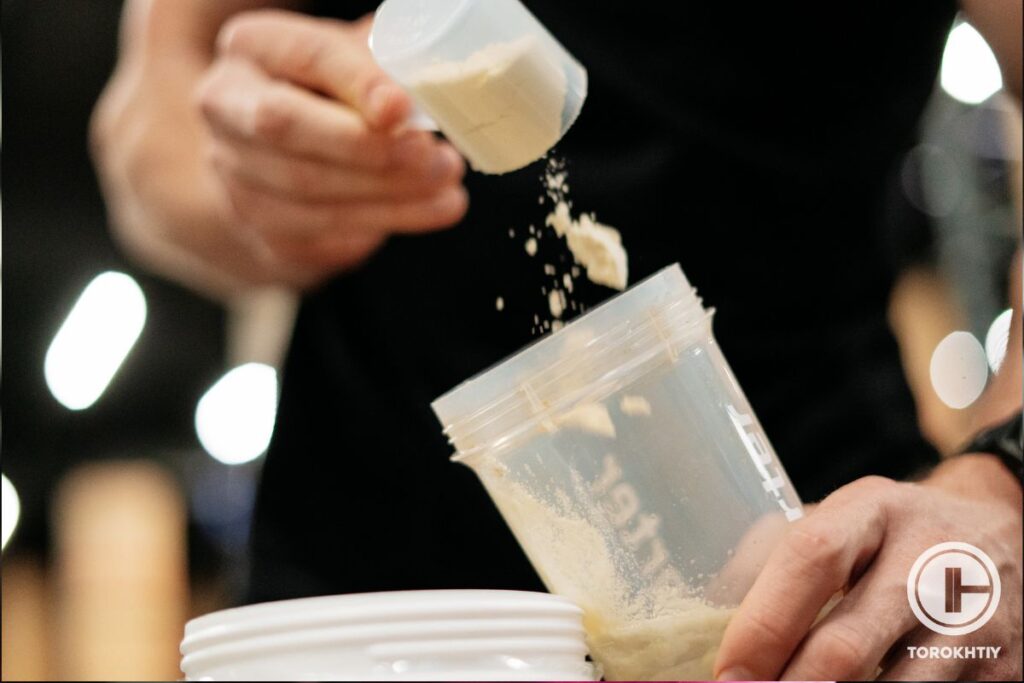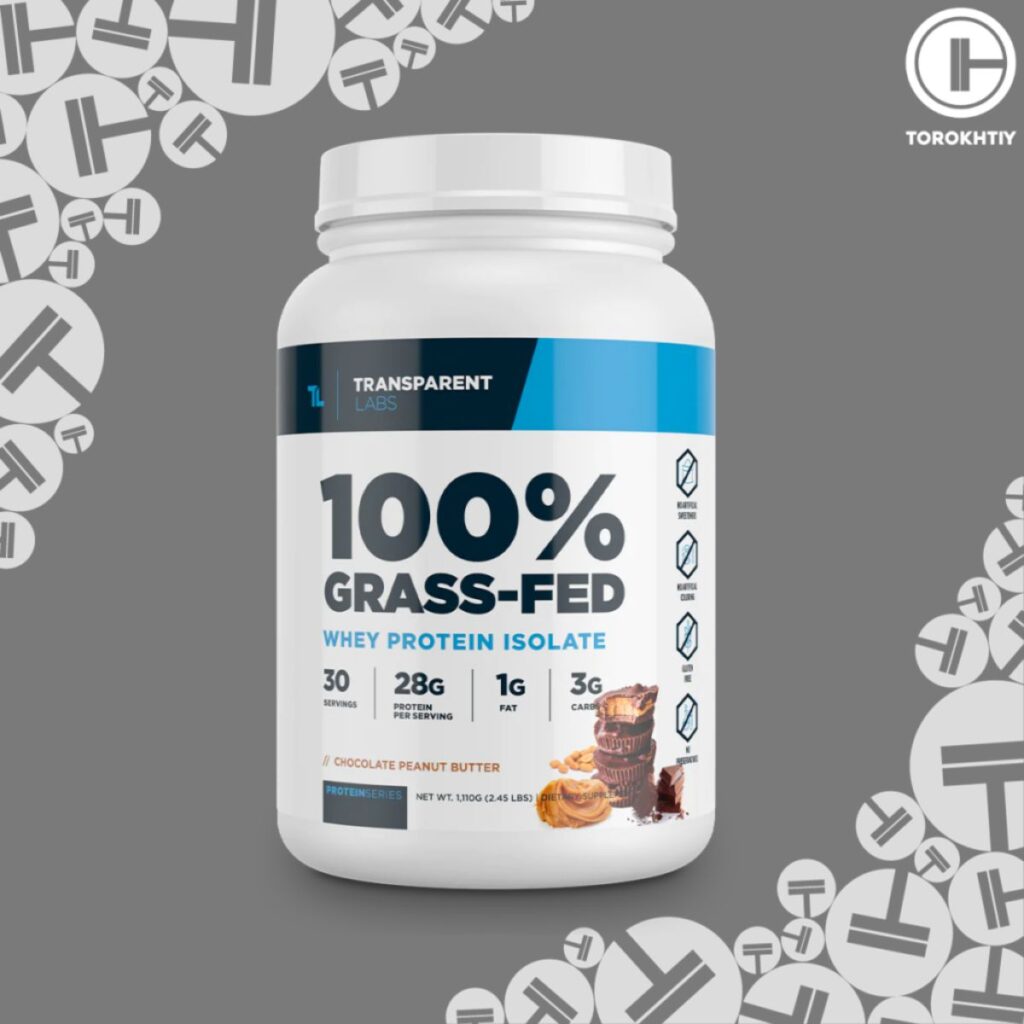Protein Shake After Running: 3 Pros And 4 Cons
Author:
Unlock your full potential by engaging with our experts and community! Have questions about your fitness journey or looking for expert advice on weightlifting techniques? Don’t hesitate — leave a comment below and Jacek Szymanowski will provide a personalized answer and insights to help you reach your goals.
Torokhtiy is reader-supported. Some links are affiliate links, and we may earn a commission at no extra cost to you. See our disclosure page for details.
Are you a runner looking for ways to improve your overall performance and recovery? Drinking a protein shake after running has become increasingly popular among endurance athletes.
Consuming protein powder after running can reduce muscle soreness, promote lean muscle growth, and boost overall energy levels. In this article, we cover the advantages and potential drawbacks of including a protein shake in your routine, as well as tips on how to choose the best product.
Consuming protein after running can reduce muscle soreness and increase energy levels. Protein supplements like snacks, powders, and shakes can help improve performance, enhance endurance, and increase the recovery of muscles after runs. However, excess protein intake may cause digestive issues, imbalanced macronutrient intake, or weight gain.

Do Runners Need Protein?
For both optimal performance and muscle growth and health, runners need to consume enough protein to keep up with the physical demands of their sport.
Protein is an essential macronutrient that helps to build strong muscles, fuel performance, and enable muscle recovery. Protein consists of amino acids, which are the building blocks of the human body’s cells and tissues.
There are several types of protein sources available to runners, including animal-based proteins such as chicken, beef, pork, and eggs, and plant-based proteins like tofu, edamame beans, and quinoa.
Why Do Runners Need Protein?
The importance of protein to runners can’t be overstated. It plays an important role in muscle recovery and growth, endurance, performance, preventing overtraining, and supporting basic bodily functions.
High-quality sources of protein contain all the essential amino acids necessary for building muscle mass, which enables runners to train efficiently and recover faster after workouts. Inadequate protein intake results in weak muscles, making runners more prone to injuries.
Post-run protein shakes can provide the essential amino acids needed to rebuild worn muscles and create an environment conducive to muscle development. Additionally, post-workout proteins promote glycogen resynthesis, which provides much needed energy during strenuous workouts, such as running marathons or other long-distance runs.
3 Main Types Of Protein Supplements For Runners
Protein supplements used by runners typically include snacks, protein powder, and protein shakes that optimize muscle growth, performance, and recovery. Let’s discuss them in more detail:
1. Protein Snacks
Some of the best sources for protein specific to runners are chicken, beef, pork, fish, eggs, dairy products, tofu, and different protein bars. These can be consumed in snack-sized portions throughout the day or after a run to help refuel muscles quickly while keeping hunger at bay until one’s next meal.

2. Protein Powder
Protein powder is an excellent and convenient food supplement for runners who are trying to increase their muscle growth, body composition, and endurance. Whey, casein, egg white protein powders, and plant-based alternatives like hemp or pea protein make up some of the most popular types of protein powders available on the market today.

3. Pre-Made Protein Shake
Pre-made protein shakes are popular among runners looking to optimize their training and recovery. After running, consuming a protein shake can help repair damaged muscles, support the growth of new muscle tissue, and offer a steady release of energy for improved endurance and performance.

3 Benefits Of Protein For Runners
Protein helps with muscle recovery and repair, improved muscle growth and strength, and enhanced endurance and performance. It is the perfect post-run supplement!
✅ Muscle Recovery And Repair
Adequate protein intake after a run helps facilitate muscle and tissue recovery so the muscles can become stronger. According to research, whey protein can help boost recovery and reduce inflammation because it contains essential amino acids that repair tissues damaged by intense exercise.
✅ Improved Muscle Growth And Strength
Consuming protein before and after your run can be highly advantageous for enhancing muscle growth and strength. In addition, protein supplementation slows down catabolism (muscle breakdown) and promotes anabolic action (muscle building).
✅ Enhanced Endurance And Performance
Protein shakes can be an excellent source of nutrients for runners looking to enhance endurance and performance. Protein shakes consumed after running provide essential amino acids that are absorbed quickly by the body, helping prevent fatigue while optimizing strength and power output throughout training sessions.

4 Disadvantages And Risks Of Protein For Runners
Intake of protein supplements by runners has potential risks that need to be discussed in more detail:
❌ Digestive Issues
High doses of rapidly digested proteins can contribute to digestive issues such as increased bowel movements, bloating, and reduced appetite.
Pro Tip:
It’s important for runners to monitor their digestion when adding extra protein into their diet. They must determine how much and what type of protein works best for them.

Certified Nutritionist
❌ Imbalanced Macronutrient Intake
High levels of protein in a diet can lead to an imbalanced intake of macronutrients. Runners need carbohydrates for energy and fat for optimal health, both of which may be thrown off balance when there is excess protein in the diet.
Too much protein consumption has been associated with decreased performance due to inadequate carbohydrate reserves during training sessions and not enough fat consumption for injury prevention and special adaptation.
❌ Increased Kidney Load
Too much dietary protein can put additional stress on the kidneys. Researchers have found that high-protein diets may cause changes in kidney function for people predisposed to kidney disorders or already having such conditions.
This is especially risky for people with pre-existing kidney disease or those who have a history of high blood pressure. These issues are known to increase the risk of developing kidney complications from excessive intake of protein.
❌ Weight Gain
A high-protein diet may lead to an unhealthy increase of fatty tissue if not accompanied by sufficient exercise and a balanced intake of other macronutrients. In addition, high-sugar protein shakes have a high number of calories per serving.
To avoid this situation, runners should make sure to get the proper nutrients their body needs through a well-rounded diet that includes fruits, vegetables, and grains, in addition to appropriate servings of protein each day.
Is Protein Good After A Run Or Before?
Understanding whether to consume protein shake before or after running is important, as timing can affect muscle and strength recovery after a tough running session.
1. Timing And Frequency Of Consumption
When it comes to the timing and frequency of consumption, protein shakes are best taken within 1-3 hours after a workout. This allows your body to begin the recovery and refueling process more effectively. It will also help you develop a healthy habit of eating enough protein, which will help you reap the benefits of this supplement in the long run.
Consuming protein every three hours is more beneficial for muscle building and recovery than two large daily doses or smaller, more frequent doses.
It’s important to note that there is no specific recommendation for consuming protein shakes on non-workout days. However, growing evidence shows that spacing out small meals high in complete proteins throughout the day can aid in weight loss when combined with exercise. As a result, drinking a protein shake after running for weight loss may be beneficial.

2. Daily Amount Of Protein For Runners
As an active individual, your required intake of protein will be higher than that of a sedentary individual. A runner should aim to consume between 0.5-0.8 grams per pound of body weight. Extreme endurance athletes require the high end of this range due to increased repair processes and muscle damage caused by their intense exercise.
Pro Tip:
It is important to meet total daily protein intake targets rather than just focusing on post-workout consumption. This offers more benefits in terms of recovery and growth over time.

Certified Nutritionist
How To Choose Protein Shakes For Runners?
When selecting the best post-run protein shake, runners should consider 3 main rules to get the maximum benefits:
1. Consider The Source Of The Protein
Runners should consider the source of protein when selecting an after-run shake, as this affects its overall nutritional profile. Whey is one of the most popular sources of added protein.
On the other hand, plant-based proteins provide a variety of essential micronutrients such as vitamins A, C, E, along with minerals like copper and zinc, which are beneficial for runners.
2. Look For Quality Ingredients And Minimal Additives
Protein drinks made from low-quality sources and poor quality control may provide inadequate nutrition and won’t help runners reach their goals.
Choose supplements from reputable brands with the best ingredients to keep your body safe and increase your running performance.
3. Consider Personal Dietary Preferences And Restrictions
When selecting the right protein shake, it’s important to consider personal dietary preferences and restrictions. For instance, if you are vegetarian or vegan, this could influence your choice in terms of protein powder type.
Those with food allergies or intolerances should also take into account these considerations, as certain ingredients may trigger adverse reactions. Plant-based proteins such as pea, soy, or rice can be suitable alternatives for those with dietary restrictions, while individuals who are lactose intolerant may need to avoid whey.
Transparent Labs Whey Protein Isolate
- Serving Size: 32.96 grams
- Price Per Serving: ~$1.8
- Protein Percent Of Weight (%): 85%
- Proteins: 28 grams
- Carbohydrates: 1 gram (depends on flavor)
- Fat: 0.5 gram (French Vanilla only)
- Added Sugar: 0 gram
- Calories Per Serving: 120
- Recommended By Athletes: Hafþór Júlíus Björnsson, Terron Beckham, Paul Sklar
If you’re looking for a high-quality whey supplement, we recommend trying Transparent Labs Whey Isolate.
As this is an isolate supplement, you can expect a stellar 93% protein concentration by calories. With 120 calories, 28g of protein per serving, 0g of fat, and only 1g of carbs, this is a perfect supplement for bulking.
Transparent Labs whey is also derived from organic grass-fed dairy, which has been shown to be healthier than non-organic milk. On top of this, like all of Transparent Labs’ products, you can expect no artificial ingredients whatsoever.

One slight downside here is that this product doesn’t have much flavor variety. It only comes in the 2 most standard protein powder flavors: chocolate and vanilla. Also, as previously mentioned this is a fairly expensive product at around $1.82 per serving.
Keep in mind, this is also for the 4lb tub as it offers the best value for money. With this being said, you’ll be hard-pressed trying to find a higher-quality whey supplement at any price point.
FAQ
Should I Drink Protein After Running?
Yes! Drinking a protein shake after cardio workouts can be beneficial for runners in several ways. It provides an energy boost and helps with muscle repair, enabling runners to get back in the game stronger than before.
Is It Okay To Drink Whey Protein After Running?
Whey proteins contain high-quality amino acids, which are essential building blocks for muscles that aid in faster muscle recovery and growth. Consuming a whey protein shake after a run helps refuel your body, replenish energy stores, promote muscle growth, and increase overall performance during future workouts.
Will Protein Shakes Make Me Put On Weight?
Protein shakes alone are not enough to cause weight gain. However, depending on the other ingredients, they can certainly contribute to it. If protein shakes contain high levels of sugar and other types of carbohydrates, along with a large amount of calories, they can lead to weight gain over time.
Conclusion
Protein shakes can be a great post-run supplement for many runners, as they provide a source of quickly absorbed, high-quality protein to aid in recovery. But it’s important to take into account individual dietary needs and goals when deciding whether or not to incorporate them into your routine.
It’s also essential to look at a number of factors, such as the timing of consumption, potential risks involved, types of proteins used in supplements, and how much protein is being consumed each day.
When using these types of supplemental powders, athletes should remember that moderation is key. As with everything, too much isn’t necessarily better!
Have you ever tried any protein supplements for running? Please share your experience in the comments below.
Also read:
References:
- International Society of Sports Nutrition Position Stand: protein and exercise // PubMed: https://pubmed.ncbi.nlm.nih.gov/28642676/
- Effects of Protein Supplementation on Performance and Recovery in Resistance and Endurance Training // PMC: https://www.ncbi.nlm.nih.gov/pmc/articles/PMC6142015/#:~:text=Protein%20supplementation%20and%20endurance%20training
- Protein Requirements Are Elevated in Endurance Athletes after Exercise as Determined by the Indicator Amino Acid Oxidation Method // PMC: https://www.ncbi.nlm.nih.gov/pmc/articles/PMC4913918/
- Nutrient timing revisited: is there a post-exercise anabolic window? // Journal of the International Society of Sports Nutrition: https://jissn.biomedcentral.com/articles/10.1186/1550-2783-10-5#:~:text=There%20is%20evidence%20that%20adding,calorie%2Dequated%20carbohydrate%20solution%20alone.
- Protein for exercise and recovery // PubMed: https://pubmed.ncbi.nlm.nih.gov/20048505/
- Effect of Whey Supplementation on Circulating C-Reactive Protein: A Meta-Analysis of Randomized Controlled Trials // MDPI: https://www.mdpi.com/2072-6643/7/2/1131
- Beyond muscle hypertrophy: why dietary protein is important for endurance athletes // Canadian Science Publishing: https://cdnsciencepub.com/doi/10.1139/apnm-2013-0591
- Dietary Protein, Kidney Function and Mortality: Review of the Evidence from Epidemiological Studies // PMC: https://www.ncbi.nlm.nih.gov/pmc/articles/PMC6356875
- International society of sports nutrition position stand: nutrient timing // Taylor and Francis Online: https://www.tandfonline.com/doi/full/10.1186/s12970-017-0189-4
- Effects of Protein Supplementation on Performance and Recovery in Resistance and Endurance Training // Frontiers Media: https://www.frontiersin.org/articles/10.3389/fnut.2018.00083/full
- International Society of Sports Nutrition Position Stand: protein and exercise // Taylor and Francis Online: https://www.tandfonline.com/doi/full/10.1186/s12970-017-0177-8
- A systematic review, meta-analysis and meta-regression of the effect of protein supplementation on resistance training-induced gains in muscle mass and strength in healthy adults // BMJ Journals: https://bjsm.bmj.com/content/52/6/376
- Grass-fed cows produce healthier milk // University of Minnesota Extension https://extension.umn.edu/pasture-based-dairy/grass-fed-cows-produce-healthier-milk
- Photos are made by Torokhtiy Media Team
Why Trust Us?
With over 20 years in Olympic weightlifting, strength training, nutrition coaching, and general fitness our team does its best to provide the audience with ultimate support and meet the needs and requirements of advanced athletes and professional lifters, as well as people who strive to open new opportunities and develop their physical capabilities with us.
By trusting the recommendations of our certified experts in coaching, nutrition, and sports training programming, as well as scientific consultants, and physiotherapists, we provide you with thorough, well-considered, and scientifically proven content. All the information given in the articles concerning workout programming, separate exercises, and athletic performance, in general, is based on verified data.
The product testing process is described in more detail here.
Author: Jacek Szymanowski
Certified Nutritionist,
M.Sc.Eng. Biotechnology
Performance Architect,
Strength and Conditioning Specialist
With over 30 years of fighting experience, specialization in nutrition coaching for athletes, and expertise in metabolic health and dietary strategies, Jacek offers a comprehensive approach to optimizing your performance and well-being. Backed by a Master of Science degree in Biotechnology, Jacek remains at the forefront of scientific advancements, ensuring that his coaching is always evidence-based and up-to-date.




Still have questions after reading our article? Unlock your full potential by engaging with our experts and community! Don’t hesitate — leave a comment below and Jacek Szymanowski will provide a personalized answer and insights to help you reach your goals.